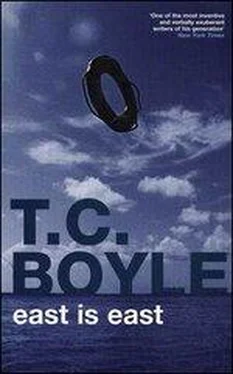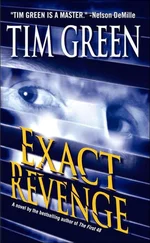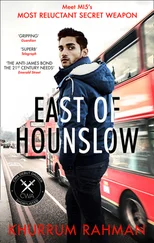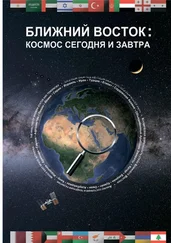She envied Laura Grobian, who got fan mail from all over the world. When she was alone in the mailroom, when she was sure no one was looking, Ruth pulled the letters out and fanned through them, transfixed by the postmarks, the addresses, the exotic foreign stamps and legends. She was envious of Irving too. And Jane, though it sickened her to admit it even to herself. Jane got letters from her publisher, of course, and proofs to correct, and once she’d even gotten an envelope from Harper’s that looked and felt suspiciously like an acceptance letter, not to mention the thin blue aerograms from Italy that came two or three times a week. As often as not, Ruth got nothing—and everyone knew it. They probably made a joke of it—who would want to write her, anyway? She didn’t have a publisher. She didn’t have an agent. She didn’t have fans or a mysterious hot-blooded Venetian lover who franked his letters only with the initials C. da V. or even friends. Her mother never even wrote her.
But today she was surprised.
She spotted the big manila envelope projecting from her box the moment she stepped through the door, and she knew instantly what it was. It was the manuscript of “Days of Fire, Nights of Ashes,” returned from the Atlantic. The New Yorker had rejected it promptly, but she’d prevailed on Irving once again to lend his name and influence to her cause and she’d held out high hopes for the Atlantic. They’d had it for three weeks. And now here it was, back again, a dead albatross, refuse in a neat foursquare envelope, one more dismissal from the world at large. As she snatched the thing from the box, her second piece of mail fluttered to the floor. It was a postcard, glossy and inviting, showing the sunstruck beach at Juan-les-Pins. On the reverse, six lines from Betsy Butler, a poet she knew from Iowa who if anything was even more obscurely published than she, and therefore someone Ruth could continue to enjoy. Betsy was on the beach. She had a poem coming out in a magazine Ruth had never heard of. All right. Fine. But there was a P.S.: had Ruth heard the news? About Ellis Disick who’d been at Iowa with them? His first novel had just gone at auction for $250,000, movie rights went to Universal and the book was a main selection of Book-of-the-Month for the spring: wasn’t that just too much? Gritting her teeth, Ruth tore grimly into the envelope from the Atlantic. Just as she’d suspected, her manuscript, slightly worn about the edges, stared back at her. The rejection slip, signed in a mad indecipherable scrawl, was curt: “Too hot for us. Try Hustler.”
* * *
Ruth spent the afternoon in bed. She licked her wounds, brooded, poked desultorily through a Czechoslovakian novel Peter Anserine had recommended with an emphatic quiver of intellectual fervor animating his Brahmin’s nostrils, and ate her way miserably through a two-pound box of tollhouse cookies. She found she was missing Sax—the old Sax, the ardent sexy Sax who lately seemed to have sublimated all his libidinous energy in the pursuit of pygmy fishes—and she very nearly let her malaise overwhelm her desire for cocktails and company. But she struggled back beyond the humiliation of the scene on the patio and the grimness of the cabin to the moment of her triumph over the entire affair of Hiro, and that cheered her. There was plenty of mileage to be got yet from that—and too, this was the day that the new arrivals would be putting in their initial appearances, and it would be a shame to miss that. Ruth spent half an hour on her face, fished through her wardrobe for something red, and came down the big staircase to cocktails as a queen to coronation.
The first person she laid eyes on was Brie Sullivan, who was standing in the foyer amidst a clutter of mismatched suitcases, looking bewildered. Ruth knew Brie from Bread Loaf and she liked her for her myopic pursed-lip expression—she always looked slightly dazed—and her air of the eternal hick and newcomer, and because, like Betsy Butler, she hadn’t published much (and judging from her workshop stories, all of which seemed to be about disembodied brains and talking unicorns, she never would). She had a broad smooth forehead and strong hands and hair that flew round her face as if she were caught in a perpetual windstorm. “Brie,” Ruth said, offering her outspread palms as she swept down the staircase, her voice rich with noblesse oblige.
Brie’s response registered somewhere on the scale between a yelp and a screech, before trailing off into frequencies audible only to more sensitive lifeforms. “Ruthie!” was the rough sense of the sound she produced, and then they were in each other’s arms, sisters torn asunder by the Fates and at long last reunited. After a moment they fell back a pace, still clutching one another but attaining enough distance for a quick but keen mutual appraisal. Brie looked good, Ruth had to admit it—but then why wouldn’t she, she was only twenty-six. “I’m knocked out,” Brie gasped, her dull gray gaze licking about the foyer, darting into the fuzzy purviews of the parlor where the dim forms of the cocktail crowd could be seen hanging protectively over their drinks, and then settling again on Ruth, “—I really am. I’m stunned. The place is fantastic, much tonier than I’d imagined even—”
“Yes,” Ruth agreed with a proprietary air, “it’s first class all the way here. Septima—that’s my boyfriend Saxby’s mother?—she keeps the place competitive, that’s for sure. They know how to spoil you. The food alone …” Ruth put three fingers together and waggled them in appreciation.
Brie was treating her to a broad open-faced look of wonder and unadulterated joy. “I’m so glad you’re here,” she said in a kind of bark. “I thought I was going to be the only one—” Brie hesitated. “The only …”
Only what? Ruth wondered. Talking unicorn? Ditzy blonde? Rank amateur? Was Brie insulting her, was that it? Was she saying that she’d thought it would be all Grobian, Anserine, Kleinschmidt and Thalamus, all celebrity and anointed royalty, but that now she saw there was a peonage here as well and that Ruth was part of it? Like herself? Ruth could feel her ears turning red.
Brie never finished the thought. She squealed something unintelligible followed by “Oh, Ruthie, it’s so good to see you!” A second obligatory hug ensued, slightly less fervent than the first, and then Ruth led Brie into the parlor for cocktails.
At the bar, Ruth introduced her to Sandy, Regina, Ina and Bob, each of whom received in return a look of such awe and abasement they might have been Salinger, Nevelson, Welty and Ashbery. Brie then grilled them, as a group and individually both, about the minutest and most banal details of their personal histories, ending up with the verboten question: “So what are you working on now?”
Ruth smiled serenely throughout, exchanging occasional glances with her friends and giving them the odd shoulder shrug for their unspoken commiseration. She was the undisputed queen here, after all—or she was so long as the pretender, Jane Shine, remained under wraps. And where was La Shine, with her flamenco hair and phony laugh—choking to death on a bit of pickled truffle in her lofty and well-appointed room? Out for a drive with her Nordic slave? No matter. In giving Brie the great good gift of her patronage—if she was all right in La Dershowitz’s eyes, she was all right, period—Ruth felt charitable, saintly even. It was the least she could do.
She let it go on a bit—“And you’re a Scorpio too?” Brie was gurgling at Ina in a battle of shoulders and flying hair—and then she cut in and took Brie by the elbow. “You’re going to want to unpack,” she said. “I’ll get Owen for you. But first”—a pause, casual as a yawn—“would you like to meet Irving Thalamus?”
Читать дальше











